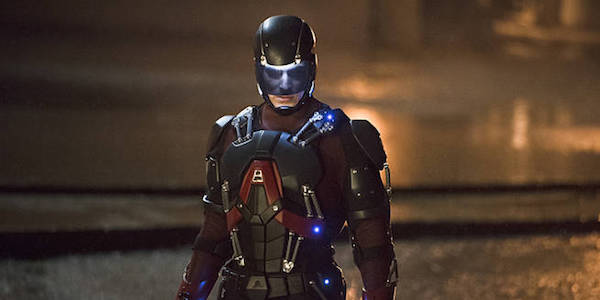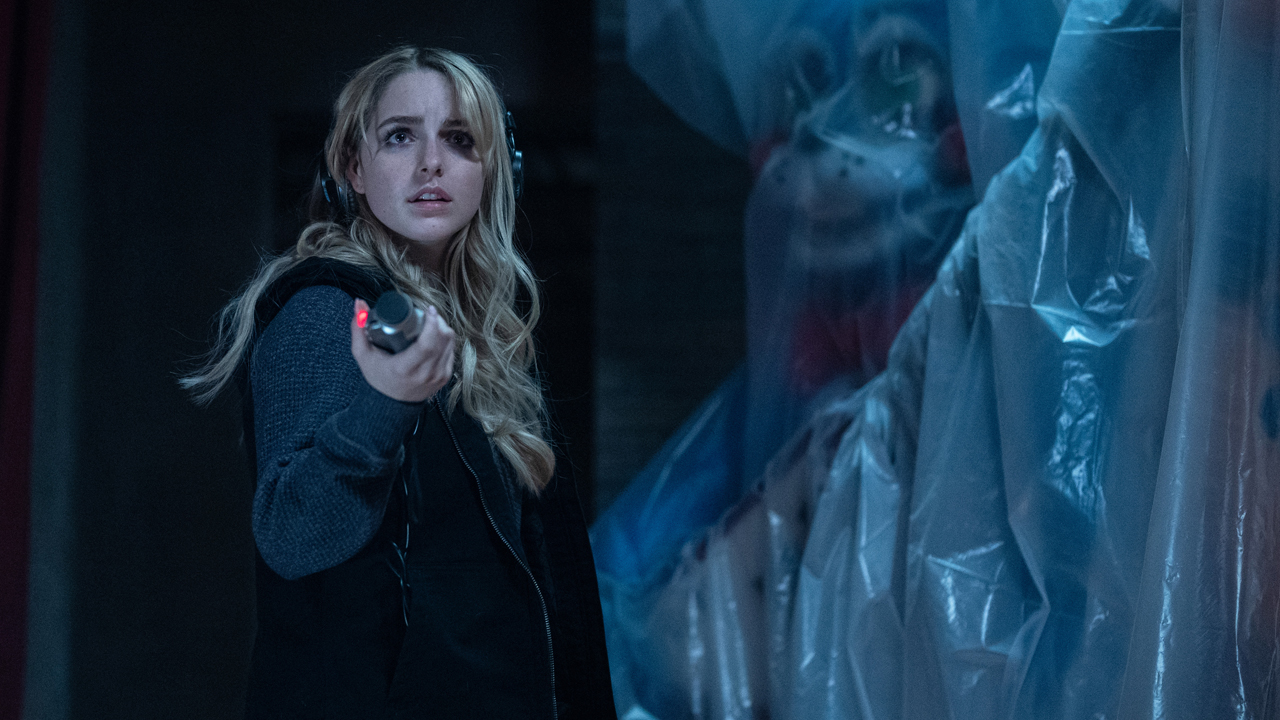Farewell To Arrow, The TV Show That Legit Got Me This Job
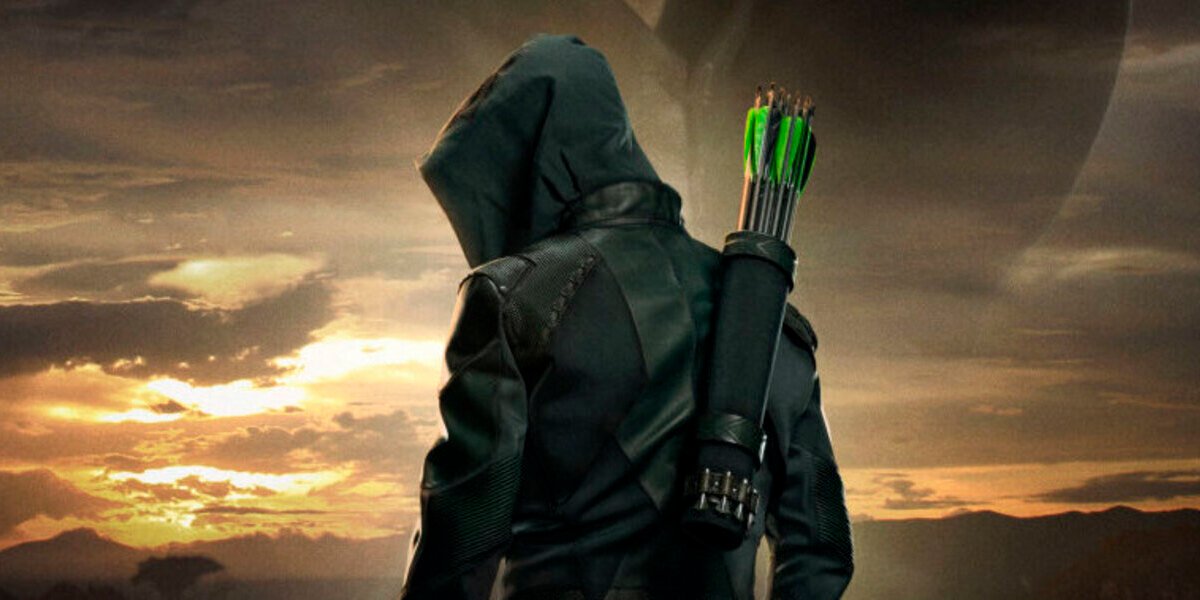
Arrow is coming to an end after eight seasons. The CW superhero series changed the landscape of television, and its legacy will endure during thanks to the still-growing Arrow-verse. That said, even if Green Arrow & the Canaries scores a series order, the series finale of Arrow is the end of an era for fans. As somebody who quite literally owes my job to Arrow, I’d like to take a look back at what we’re losing and what it leaves behind.
Before I dive into Arrow’s legacy: did Arrow really get me my job?
Yep! I really do have Arrow to thank for bringing me to CinemaBlend. Once upon a time, I wrote about Arrow elsewhere, and I gained a reputation during Season 3 for how much I disliked Felicity being stuck on “Palmer Island” in a relationship with her boss, while the Atom's suit seemed to get a disproportionate amount of the budget on Green Arrow's show. So, somebody on social media kindly sent me a link to this story:
Thus, I discovered CinemaBlend, found there was an opening for a TV writer, and starting covering Arrow for Season 4. Now, here I am all these years later to dramatically eulogize a TV show!
Has Arrow been perfect? Certainly not, and I’ve probably poked fun at Arrow at least as much as I’ve praised it. I have a well-documented hatred of Oliver’s flashback hair, regularly refer to Lazarus Pits as “magical pools of resurrection juice,” still haven’t forgiven Oliver for lying to Felicity about William, and will never understand why I was ever supposed to root for Oliver/Laurel after how they started. And don’t even get me started on magic and metas on Arrow!
But I’m only one of many, and we’ll undoubtedly all miss different things about Arrow. Here's what we're losing and what the series is leaving behind.
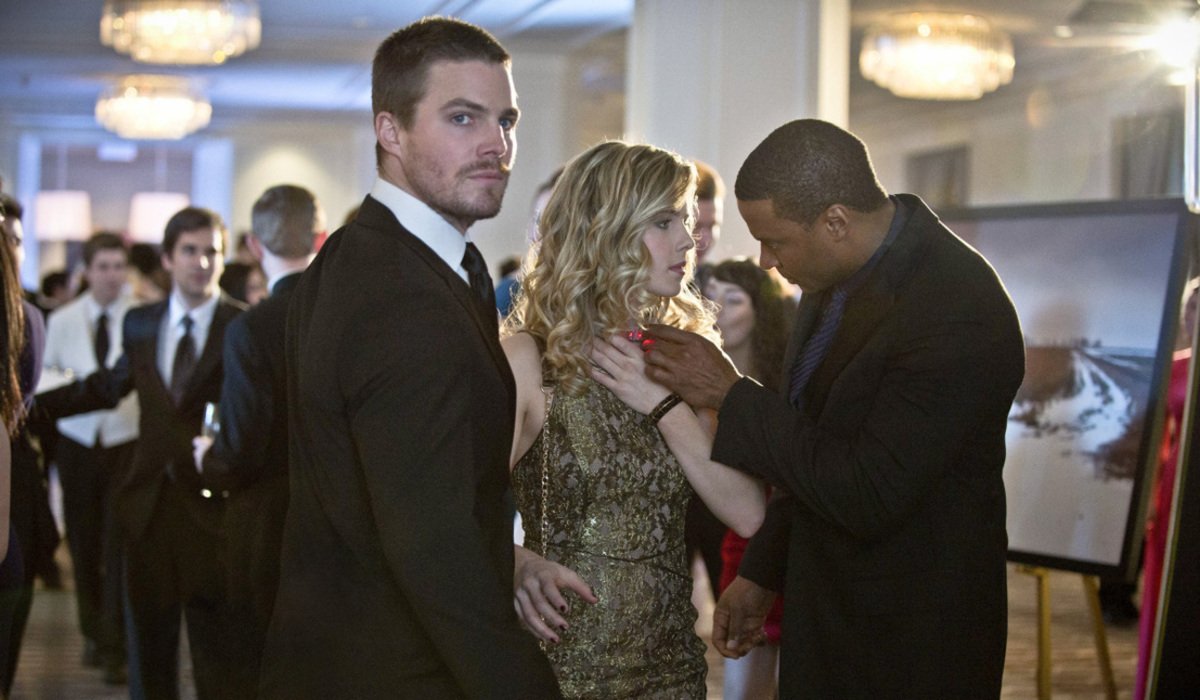
What Arrow Brought To Television In The Beginning
Arrow is the show that proved back in 2012 that audiences were willing to suspend their disbelief for a new superhero series, even if it was something dark and gritty rather than the second coming of Smallville on The CW. Green Arrow wasn’t exactly the best-known of the DC Comics heroes, and even I’ll admit that the pilot and early days of Arrow were basically Batman Begins if Christian Bale’s Batman was an archer who killed people.
Your Daily Blend of Entertainment News
The show's early success proved viewers would watch a superhero without superpowers who broke some of the rules held dear by the likes of Batman and Superman, and Stephen Amell put in the physical work to sell Oliver rampaging through Star(ling) City. So how, if Season 1 started all about Batman Begins-esque Oliver, did Diggle and Felicity become so important? Well, Arrow may have begun with one man’s quest, but I'd argue that it didn’t really come together until Oliver formed a team with people who knew his secret.
Tommy may have been his best friend and Laurel may have been the woman he idealized, but Oliver developed as a character when he had people in his life he didn't have to lie to. The original Team Arrow of Oliver, Diggle, and Felicity was so successful that it arguably created a template for the solo superhero series that would follow. Is it any coincidence that Barry basically woke up to his own Team Flash on The Flash?
I also want to highlight original Team Arrow because Diggle and Felicity’s consistent roles as the two most important people to Oliver’s journey from the first season to the last (even accounting for Emily Bett Rickards’ absence in Season 8) demonstrate Arrow’s ability to succeed without sticking religiously to source material. I didn’t have a Green Arrow comics background when I started this series, so I naturally gravitated toward what connected with me as a viewer (other than John Barrowman): Team Arrow.
Diggle was the brother and brother-in-arms Oliver needed and, as viewers ultimately learned, vice versa. Felicity proved her worth to Team Arrow before she even knew Oliver was the Hood, and as for their relationship… Well, I tend to define a TV pairing as having romantic chemistry if there’s ever a point when I think they’re going to kiss even though it’s an extremely inappropriate time for kissing, and I got that with Stephen Amell as Oliver and Emily Bett Rickards as Felicity. Arrow became a comics-based show rather than a comics-reliant show, largely thanks to original Team Arrow.
With the end of Arrow, we’re losing the show that kickstarted live-action superheroes on the small screen, didn’t rely on or religiously adhere to comics, delivered a hard-earned hero’s journey, and proved that superheroes don’t need superpowers to anchor a primetime series. If not for the winning formula the show found by the end of Season 1, Arrow never would have made it to Season 8, and The CW would be a very different network.
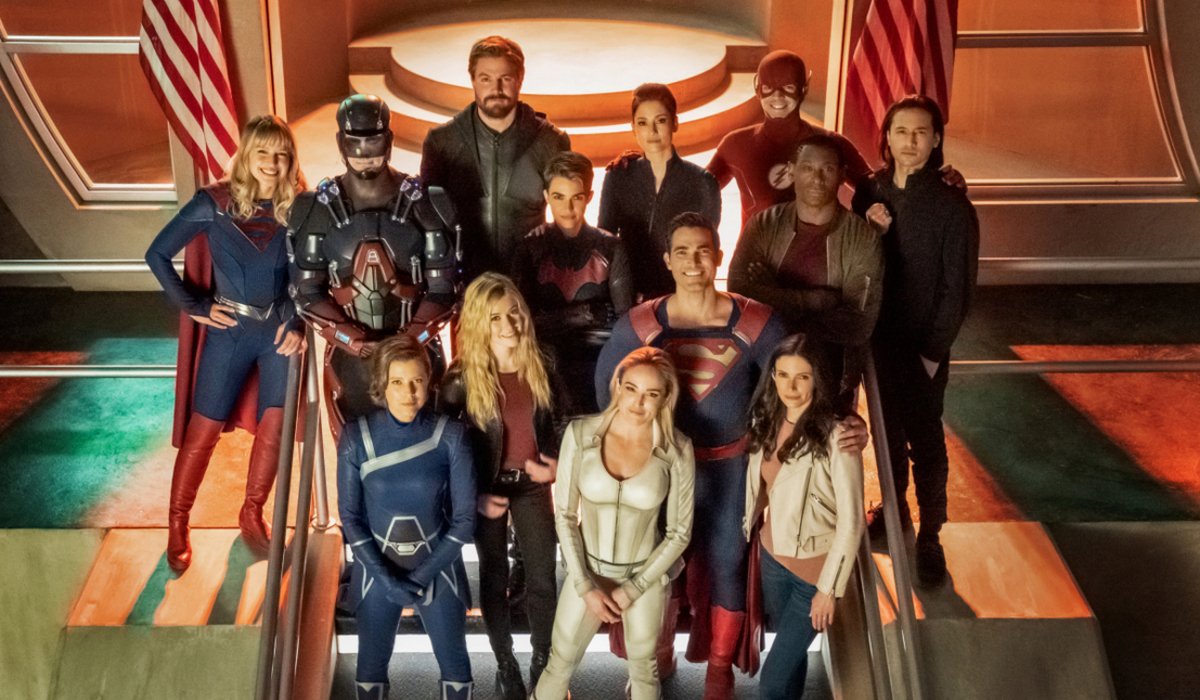
What Arrow Leaves Behind
On the one hand, Arrow probably leaves behind a whole lot of fans who are disgruntled about how “Crisis on Infinite Earths” changed vital parts of Oliver’s eight-season journey in one fell swoop, not to mention all the other other fan issues that will undoubtedly not be resolved by the time the final credits roll. If my years of covering Arrow have taught me anything, it’s that there is definitely no pleasing everybody.
On the other hand, Arrow leaves behind a powerful legacy that won’t be forgotten any time soon and could well power The CW for the foreseeable future. After all, an almost shocking number of the shows on The CW wouldn’t exist if not for Arrow. There’s a whole Arrow-verse now.
It began with The Flash after Grant Gustin appeared in Arrow Season 2, followed by Legends of Tomorrow. Even though Supergirl started on CBS, I doubt the Eye Network would have given it a shot if not for Arrow and Flash. Batwoman made its solo debut in the 2019-2020 TV season, and “Crisis” finally brought Black Lightning into the fold. Superman and Lois Lane are getting their own series, and Green Arrow & the Canaries could launch as an Arrow spinoff.
There could be as many as seven TV shows on the air next season that never would have existed without Stephen Amell squeezing into some very snug green leather, picking up a bow and arrow, and starting a superhero universe.
Even superhero TV fans who may not love Arrow have to appreciate what Arrow has done for the small screen. The five-part “Crisis on Infinite Earths” crossover, for all that I wish it had ended without resetting eight seasons of Arrow-verse history, was a huge accomplishment that even connected The CW to the DC cinematic universe.
As for me, Arrow leaves somebody whose knowledge of superheroes once didn’t extend much further than movies and Batman: The Animated Series with a whole lot more investment and appreciation of all things super. I still prefer non-superpowered heroes, though! I’ve always said I’d be an Arrow loyalist until the bitter end, and here we are.
Will I ever take Laurel’s “journey” to becoming Black Canary after a handful of boxing lessons seriously? I very highly doubt it. Was I disappointed that the “Crisis” reset didn’t give me Starling City back? Of course. Are there parts of the series that I chose to ignore here for the sake of nostalgia rather than critique? You bet. But I’ve enjoyed the Arrow ride, and hope the Arrow-verse continues to honor its founding series and hero.
The Arrow series finale airs Tuesday, January 28 at 9 p.m. ET following a special presentation at 8 p.m. ET on The CW. For some viewing options once Arrow is over, swing by our 2020 winter and spring premiere schedule.

Laura turned a lifelong love of television into a valid reason to write and think about TV on a daily basis. She's not a doctor, lawyer, or detective, but watches a lot of them in primetime. CinemaBlend's resident expert and interviewer for One Chicago, the galaxy far, far away, and a variety of other primetime television. Will not time travel and can cite multiple TV shows to explain why. She does, however, want to believe that she can sneak references to The X-Files into daily conversation (and author bios).
